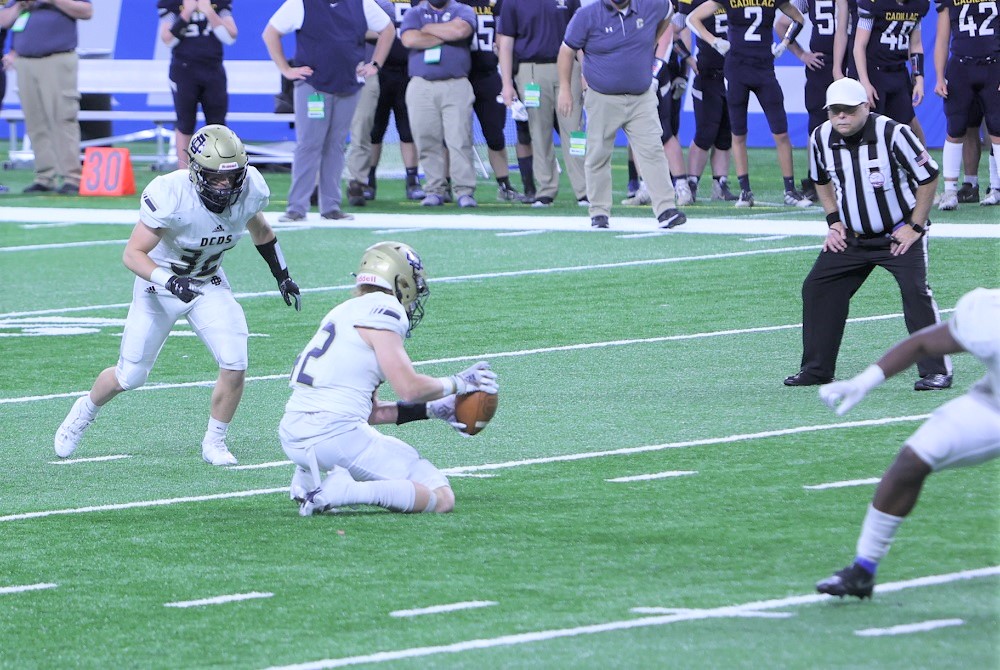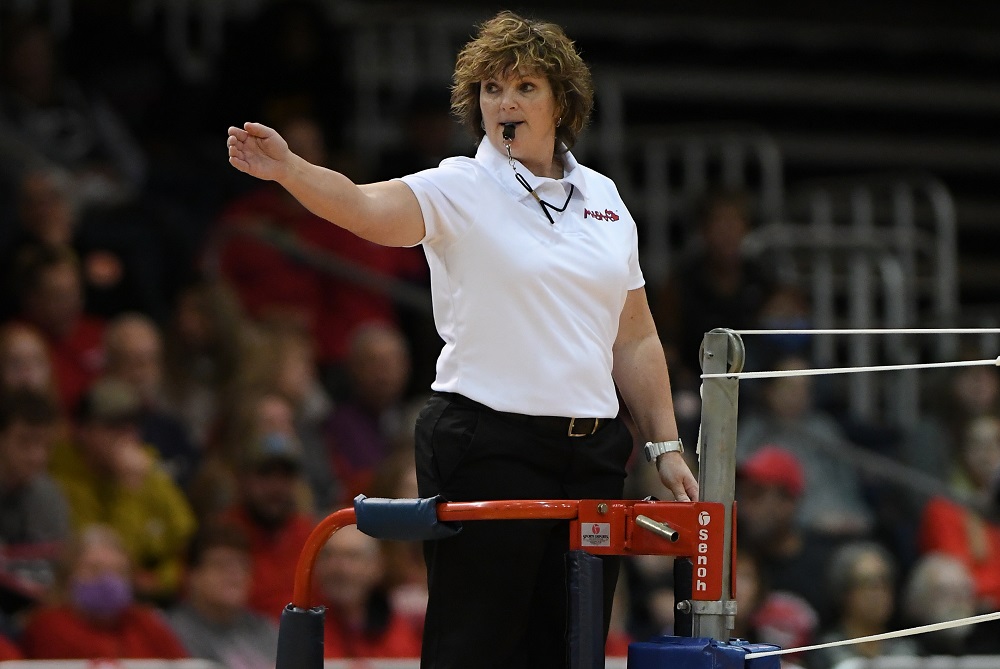
Be the Referee: Field Goal Falls Short
By
Sam Davis
MHSAA Director of Officials
September 30, 2021
Be The Referee is a series of short messages designed to help educate people on the rules of different sports, to help them better understand the art of officiating, and to recruit officials.
Below is this week's segment – Field Goal Falls Short - Listen
Three things can happen if a field goal attempt crosses the line of scrimmage but comes up short of the goal line. Do you know all three?
First, the ball can go out of bounds. If that happens, the ball is dead and on the change of possession, the team newly on offense takes over where the ball went out of bounds.
Second, the kicking team can be the first to touch the ball. When that happens, this is the first touching and again the team newly on offense takes over where the ball was downed.
And third, the receiving team can return the kick. And they would take over on offense after the returner has been tackled or goes out of bounds.
Think of a field goal attempt as a punt, and you’ll always know what’s possible if the kick comes up short of the goal line.
Previous editions
Sept. 23: Volleyball Obstruction - Listen
Sept. 16: Catch or No Catch - Listen
Sept. 9: Intentional Grounding – Listen
Sept. 2: Pass Interference – Listen
Aug. 26: Protocols and Mechanics – Listen

Be the Referee: Switching Sides
By
Sam Davis
MHSAA Director of Officials
September 6, 2022
Be The Referee is a series of short messages designed to help educate people on the rules of different sports, to help them better understand the art of officiating, and to recruit officials.
Below is this week's segment – Switching Sides - Listen
In volleyball, a rules modification that came about during COVID has been instated as a permanent change - with overwhelming support from coaches and officials.
Previously, teams would switch sides after each set, sometimes creating a traffic jam as players and coaches move benches from side to side. Unless there is a clear competitive advantage, there is no switching now. Coaches like having a dedicated home bench and the improved pace of the match.
Things that would necessitate teams switching would be less serving room on one end of the court, a window on one side with the sun shining in, or an overhead obstruction on one end.
It’s up to the official to determine if an advantage exists and if teams will switch at the end of each set – or stay on the same side for the entirety of the match.
Previous Editions:
Aug. 30: Play Clock - Listen
Aug. 23: Intentional Grounding Change - Listen

